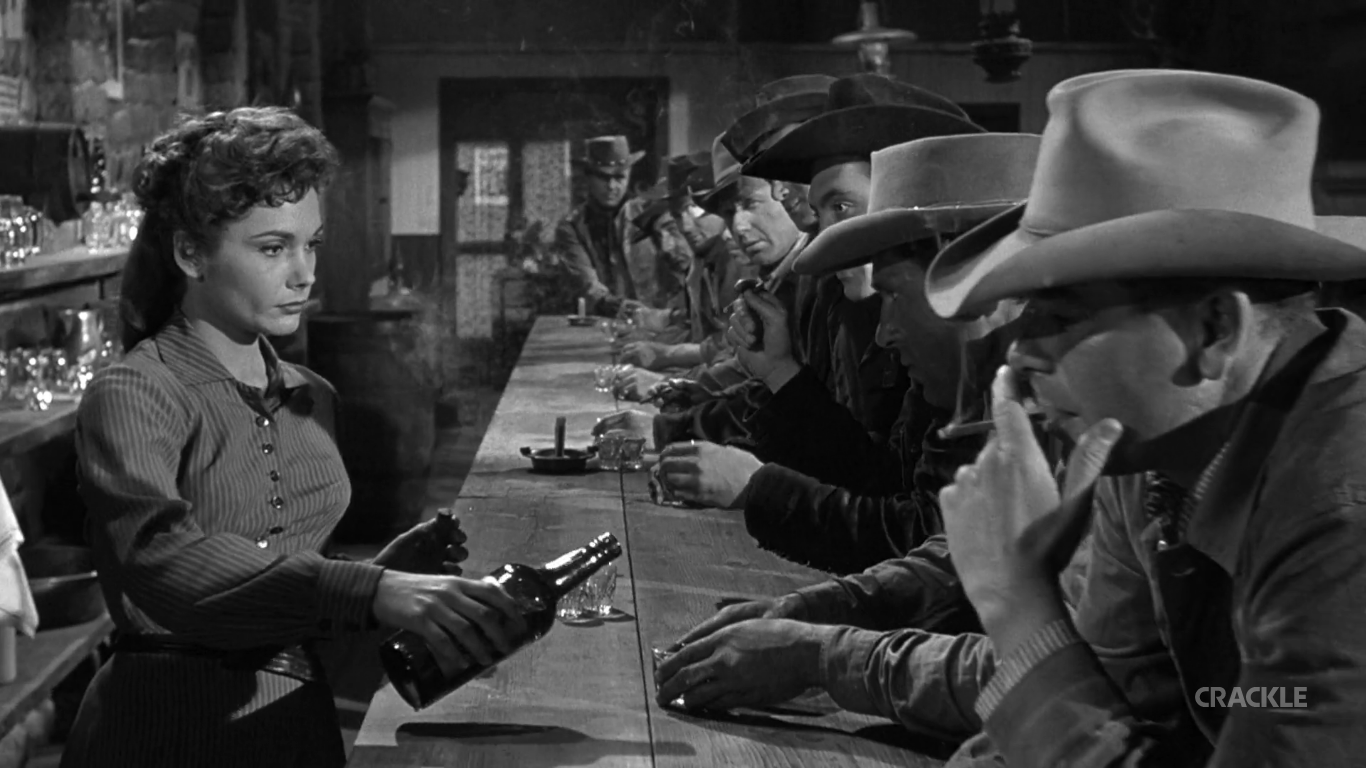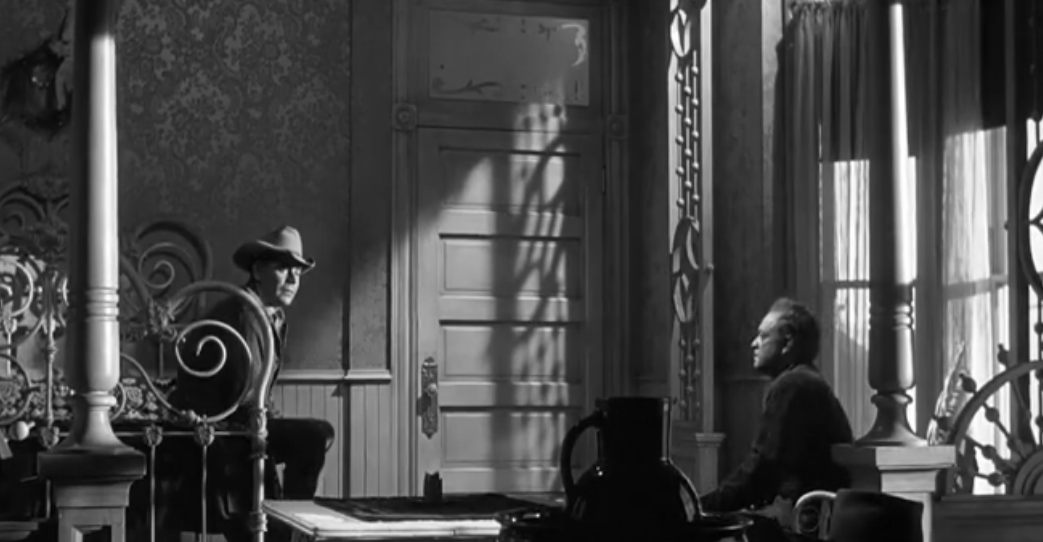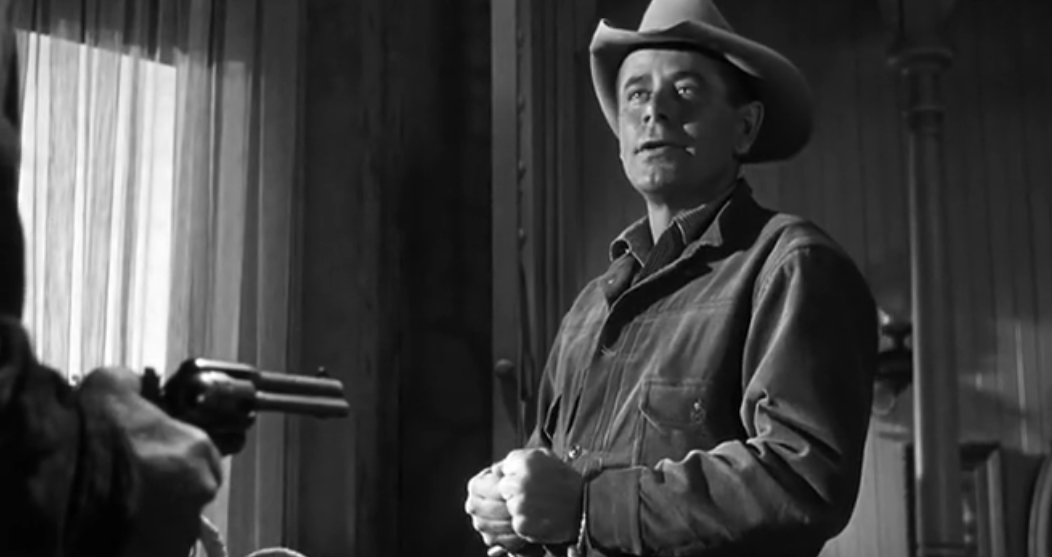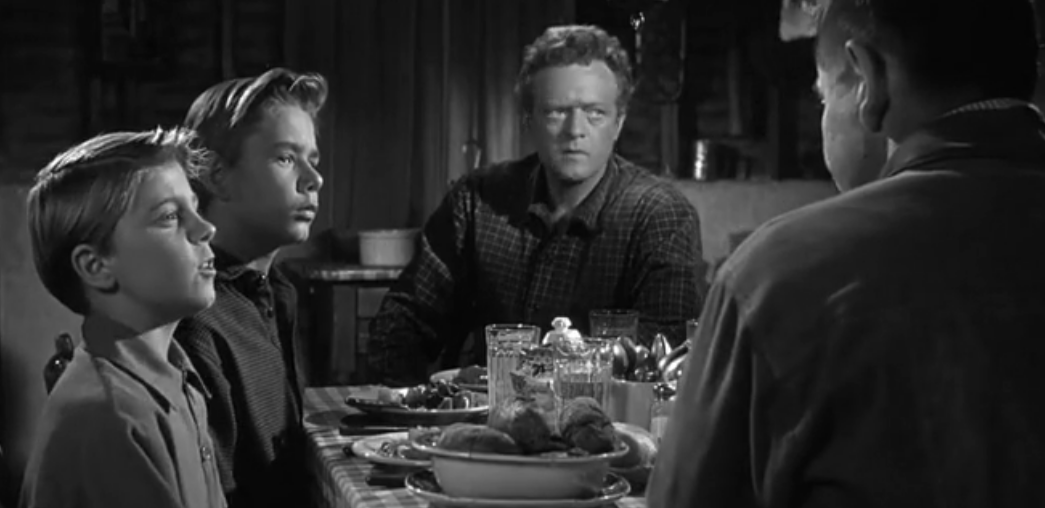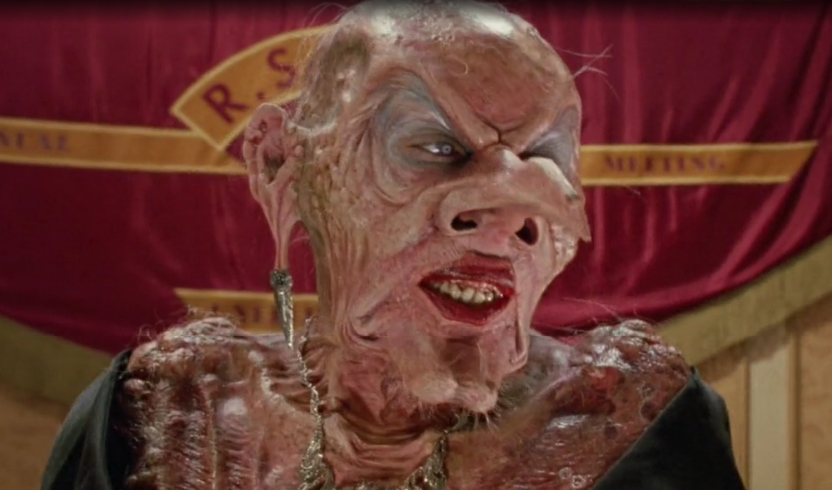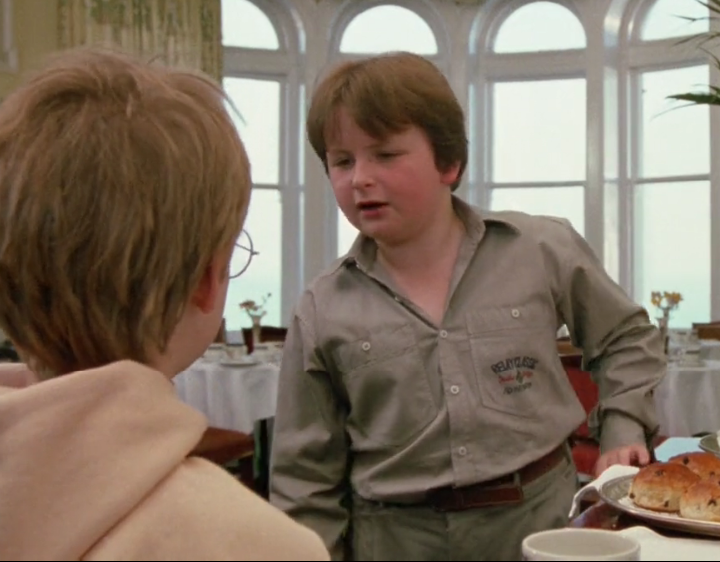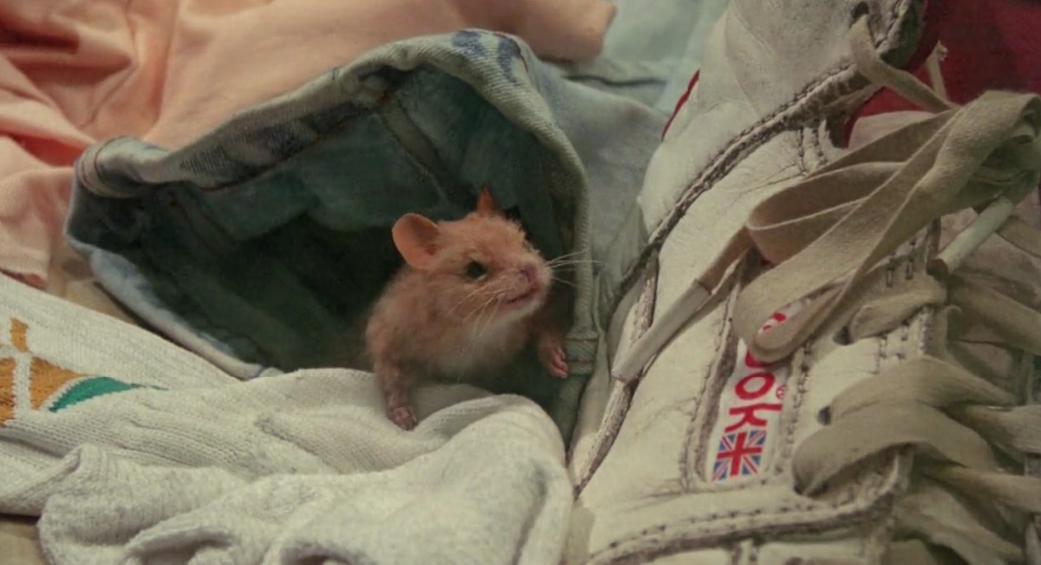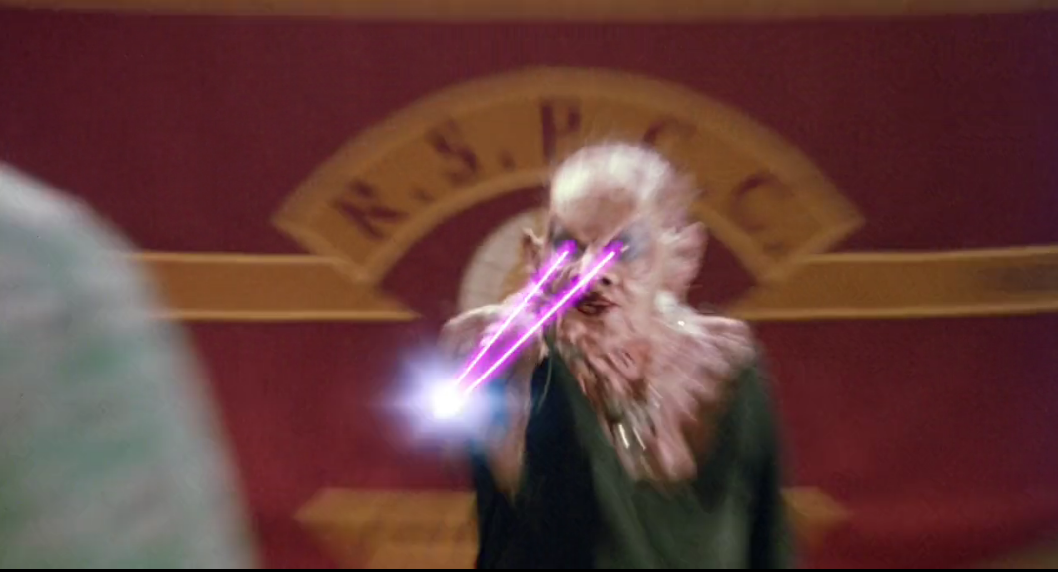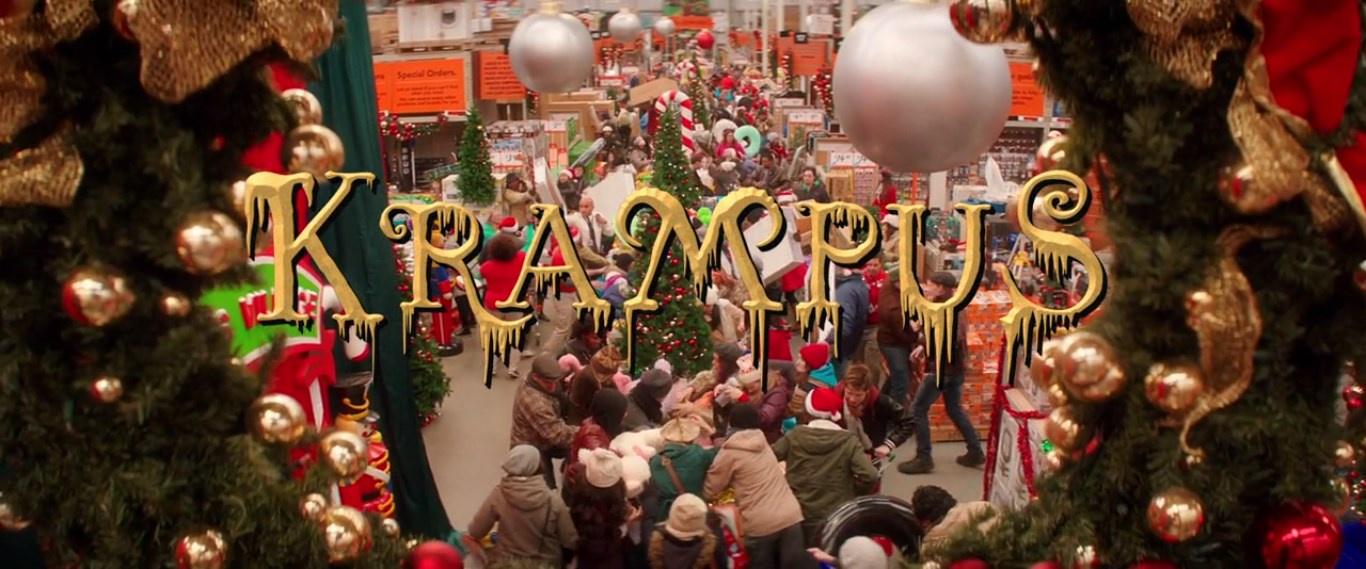
this review is overdue because i had thought i would wait to see who the official, undisputed president of the united states would be.
i get that this feels like a pretty flimsy excuse given it’s now the end of the month and i’m at the point now where i have put this off for so long that it’s ridiculous but it did seem like it was going to be a relevant fact in a movie that truly feels like it’s from an ancient age. to be upfront, i like krampus. it was pitched to me by a patreon donor, a frequent flyer (repeat offender?) who sends me bad movie suggestions that i pretty much have mostly loved. this is a rare one where i straight up said i wouldn’t add it to the bad movie book but would prefer to write a glowing review of it to celebrate what i loved about the deliberately hammy atmosphere of this movie that works in service of its stupid premise and execution.
and then i watched it. and my desire to write a glowing review dropped a few degrees. just a few.
it’s not the movie’s fault. that’s part of why this review has taken such a long time to do: i’ll have to actually think about how i’m going to address this movie’s themes that have since carbon dated it as from the Before Times. there is a balance i want to strike when i try to discuss this. if i’m too aggrandizing, i’ll come off as smug and patronizing. if i’m too blasé, i’ll look like the kind of person who swerves into animals on the road.
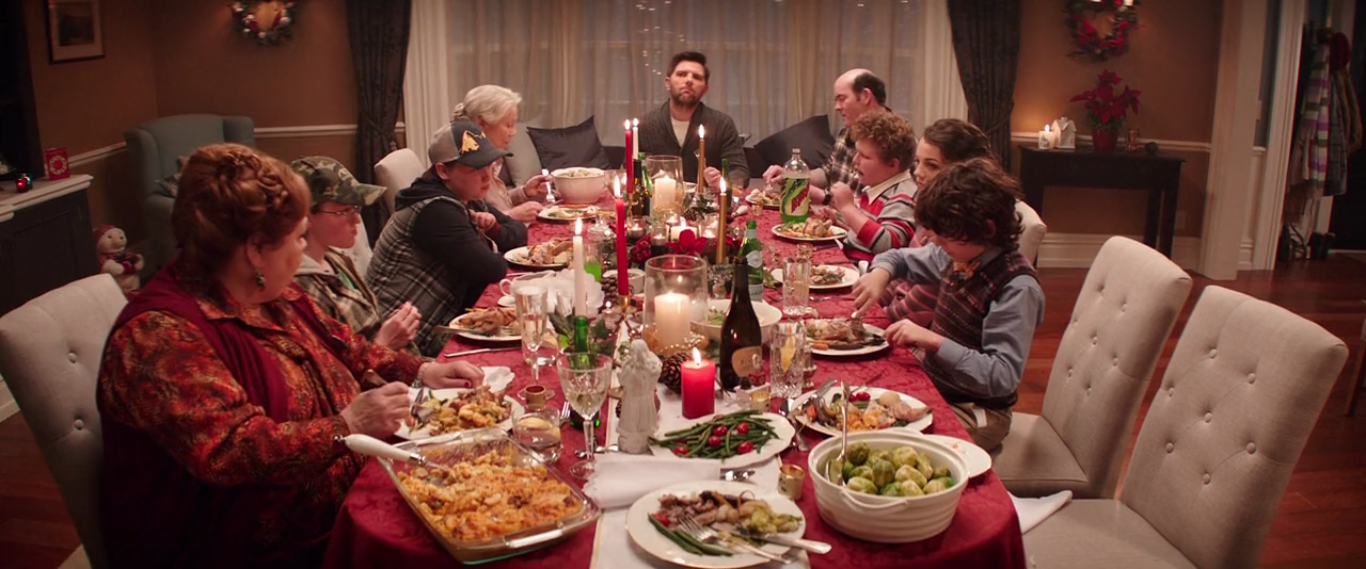
i think there’s a vital distinction to be made between something that is 80s inspired in the way that something like “stranger things” is and something that is 80s flavored the way that krampus is. it assumes we, the audience, have a few shreds of dignity lying around and want to maintain, so instead of pounding us over the head with fists whiles crying “remember this thing from the 80s?” so you can receive the nostalgia brain chemicals, it tries to evoke the aesthetics and tone of movies such as gremlins or child’s play indirectly. krampus pulls from the rarely drawn well of that sort of tongue-in-cheek, campy, self-aware horror that doesn’t sacrifice the soul at the core of it’s conception in pursuit of what it thinks might be a good joke.
in spite of the modern day setting almost no trace of modern tech exists in this movie. outside of a brief scene where the sister uses something skype-ish to talk to her boyfriend, this movie could have taken place at any point between 1980-2015 (and absolutely no later than that, because the right-wing people depicted in this movie no longer exist). it’s a movie that’s dated only in the hamfisted and stereotypical politics that seem quaint by today’s standards.
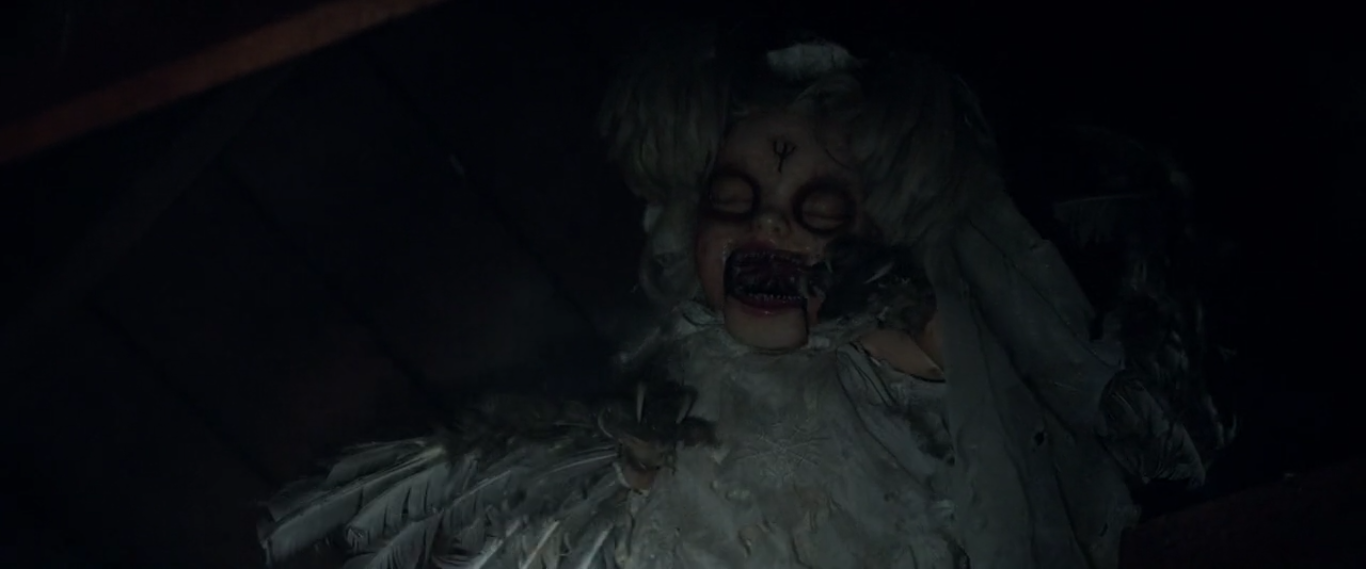
there are some odd dips and swerves in the ability to maintain the 1980s monster movie pastiche. the adherence to the form is admirable when it comes to the practical effects and the movie suffers drastically when stuck to wallow in the CGI swamps. the monsters the ransack the attic benefit enormously from the audience being able to perceive them as something tangible, something that has some fucking weight to it. most horror movies in the modern day are made or broken by whether or not the audience will be able to be convinced of the authenticity of the monster. they don’t need to be convinced that it is a 100% living and breathing (or…you know. just animate) creature, but that it is an organic and natural part of the world it occupies regardless of physical limitations.
uhh for example: e.t. is just a bunch of vulcanized rubber some puppeteers are wiggling around in ways that could be construed as lifelike, but its the way the world around them reacts to its physical presence that makes that little son of a bitch seem like an actual part of the world he is occupying instead of something that has been clumsily overlaid onto it. the aim is to maintain the illusion of seeming life-like, not necessarily “real”.
in comparison, the cgi gingerbread feel weightless and cheap. they float through their scene ineffectively feeling like a bad phone filter or oddly specific ghosts. the sheer mass and volume of the previous monsters that caused them to feel as though they were overflowing or bursting wildly out of the screen is totally absent here in spite of the attempts to capture some manic giggling energy. it’s not the same!!
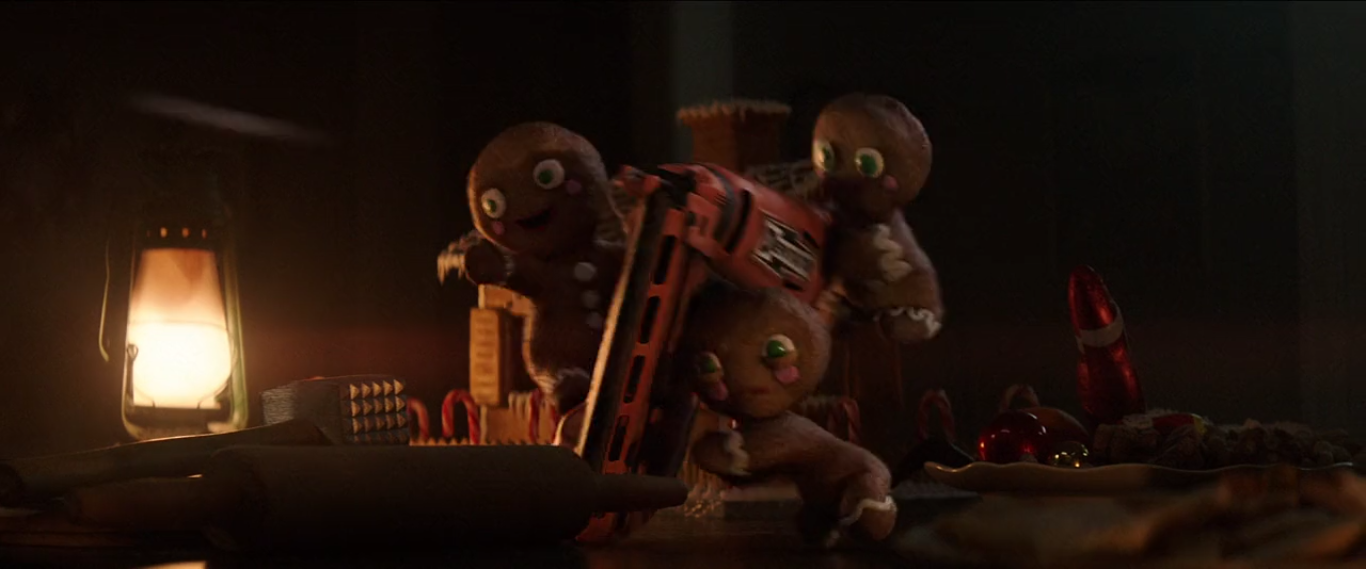
it’s a little odd that a movie about the physical manifestation of disproportionate retribution for a year’s worth of childhood mischief decided to take a staunch liberal political stance but it’s only odd in hindsight, i suppose. thinking back to when i saw this movie in 2015, i don’t remember blinking an eye at the spoon-feeding of what are essentially “the daily show” jokes that were left on the cutting room floor and given new life by being clumsily stitched into this script. max, the protagonist (who is 7 years old or maybe 15. it’s literally impossible to tell), comes from a family comprised of affluent, attractive, sensitive liberals while the visiting in-laws are poor, dumb, ugly rednecks. if you were expecting nuance and subtlety from krampus don’t hold your breath. its evoking the 1980s after all.
but if krampus had anything substantial to say with these jokes and character archetypes it more or less squandered them, although i have to be clear, i’m not really bothered about the inclusion of these characters in the sense that i think their depictions are harmful or too alluring (since it seems evident that the audience is intended to jeer and pity them as slaves of their ignorance). instead, i found myself roiled with a flurry of contrasting emotions when watching this movie in 2020: nostalgia, longing, weary resignation and the horror inherent in the gradual dawning realization that this movie is accidentally one of the last of a forgotten time. the attitudes present in this movie today were, as hard as it is to believe, once the mainstream. i wish people were this normal again. god take me back. we could fix it. take us back!! take us back!!!
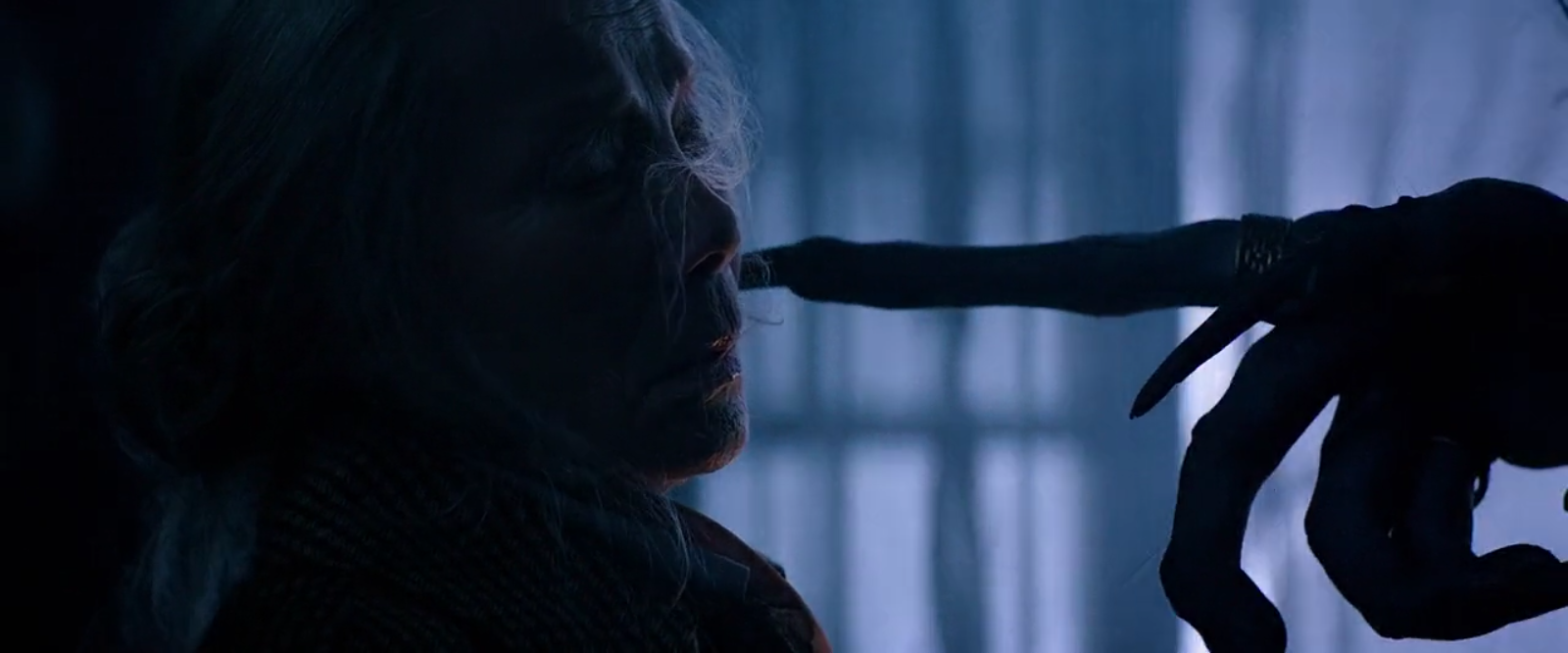
given what we have collectively experienced over the past 4 years, i have no doubt that the smug liberal viewpoints coming from the primary protagonists and the fact that the moral of this story is “learn to co-exist with your vile republican side of the family” has the potential to get under people’s skin. consider this: we are living in a world bad enough where a movie from 5 years ago is now so politically irrelevant that we have to preface it with the warner brother’s problematic content warning lol. alright obviously nothing is even remotely that bad. all of the awkward dinner conversation and offensive shit talk is comparatively mild to literally anything that gets aired at 6am on the morning news now. but now it is legitimately fascinating to go back and look at krampus, this fucking christmas goat movie, as a accidental political piece because it incidentally captured the zeitgeist of a country on the tipping point of madness.
see, now this is the paragraph where i would have compared and contrasted our future based on the election results that happened during the first week of this year, but i can’t do that because democracy has failed. it does seem like the gears are finally inching forward for biden. to be honest i wish i knew what this meant, but i don’t. if it were trump it would have meant more of the same: the violence, the terror, the waking up every day wondering if this is the one where you finally can’t take it anymore because you’re tired seeing a steady stream of misery in your eyeballs 24/7. with biden, my fears are the same but with one difference: the return of the smug intellectual superiority that permeates the extended family’s introduction clouding the senses of everyone who was seemingly radicalized to the left after realizing how broken the systems are for everyone and not just the tiny bubble they were entrenched in for decades.
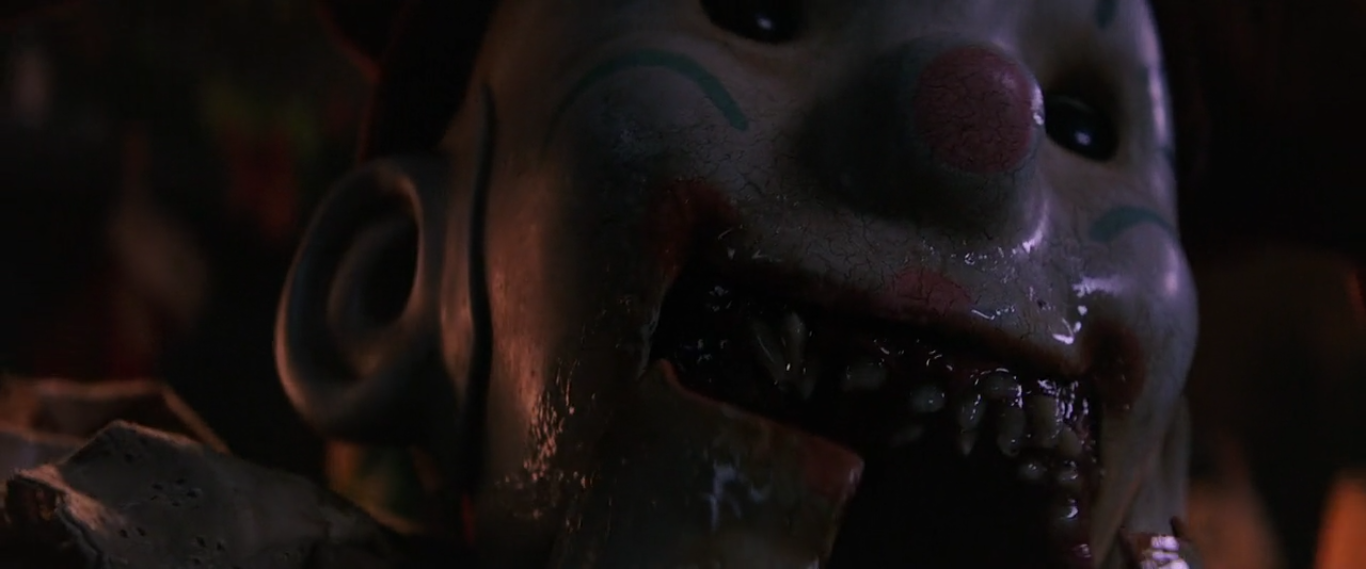
anyway, the movie is good. it is a time capsule in layers, as both a love letter to the 80s and as an accidental snapshot of a time when the national political discourse was so radically different that it makes this movie feel like it fell out of a different dimension. in spite of my review here it is a light watch (VERY light, no blood at all and only 98 minutes) and has some of the best audio design in a movie i’ve heard in a while so if you can hear it on a good sound system you’ll be pleasantly surprised. throw it on mid-december and let it ride while you laze on the couch surfing on your phone and dreaming of a better world.

